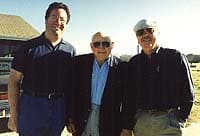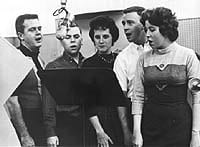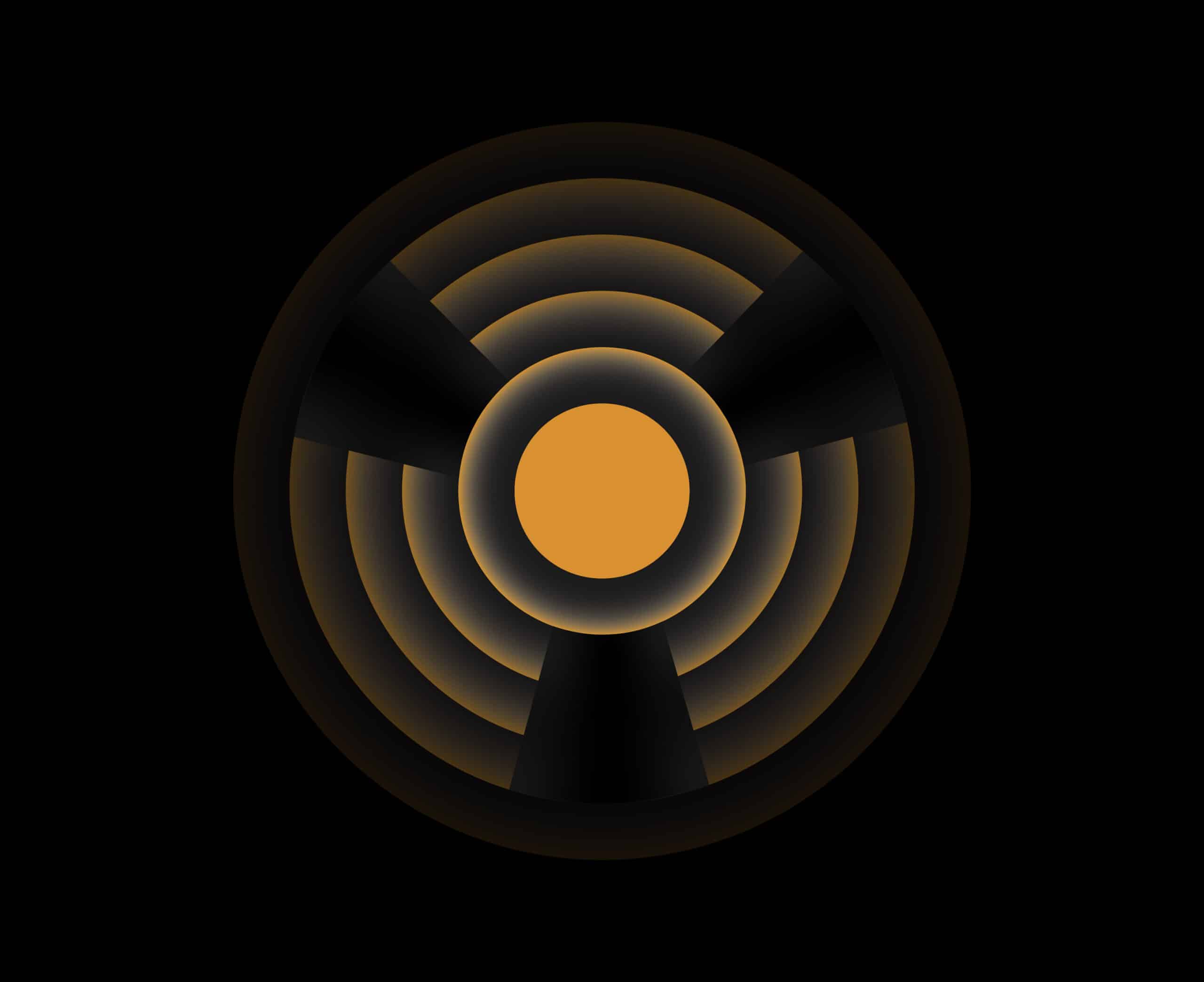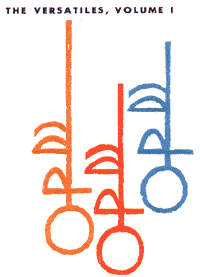Media Preservation Foundation Collection

(l-r) Tracy Carman, Media Preservation Foundation, Jim Wells and Jodie Lyons, Futursonic Productions. When this photo was taken in 1995, Jim and Jodie hadn't seen each other in 30 years.
Futursonic's Versatiles vocal group, 1960. (l-r) Jodie Lyons, Brian Beck, Libba Weeks, Jerry Whitman and Judy Parma.
|
The Media Preservation Foundation, a not-for-profit organization dedicated to the preservation of media archives, is a labor of love for Tracy Carman of Massachusetts and Don Worsham of California. In 2000, while tax-exempt status was pending for REELRADIO, Media Preservation Foundation established a fund for contributions to keep the REELRADIO web site online.
The Foundation's archives include, but are not limited to:
The Foundation's objective is to "acquire the items before they make their way to a dumpster." It is the Foundation's intention to make these archives available to the public for research and educational purposes.Don Worsham has been researching and writing a book on radio ID jingles for several years, which the Foundation hopes to publish. Collectors wishing to contribute materials to the Foundation can contact Tracy Carman via e-mail, or write The Media Preservation Foundation, Box 61223, Longmeadow, Massachusetts 01116-6223. Visit Media Preservation Foundation on the web at www.jingles.org The Foundation has received both financial and material contributions to date from the Estate of Ron Lewis; the Estate of Edith Siday; Brian Beck; Ed Brouder of Man From Mars Productions; Bob Craig of WPEN Radio; Ken R. Deutsch of Ken R., Inc.; Ben Freedman of Ben Freedman Productions division of CPMG, Inc.; Chuck Herlihy of WEAT/WIRK Radio; Radio Historian Peter Kanze; Jack Kratoville of New York's WLTW (Lite-FM); Bill Shannon of Charleston's WXLY; Doug Allen Wedge; Jodie Lyons and Jim Wells, both formerly of PAMS Productions and Futursonic Productions; and Jonathan M. Wolfert of Jam Productions, Inc. amongst countless others. |
Description by Tracy Carman
The final format of WNBC prior to its demise was “The Time Machine”. As a long time listener and fan of the radio station, it was interesting to hear it transformed into an oldies format complete with reverb and historic PAMS jingles.
While the station bought many PAMS jingles, sung by both the KenR vocal group in Toledo and the CPMG vocalists assembled in Dallas, the station wanted a more authentic sound to the cuts as heard originally on WABC. So, Dale Parsons, Program Director of WNBC and Dan Taylor, station personality, pulled out a razor blade and explained it to the singers. The end results are heard here… a combination of cuts utilizing the jingles as delivered by CPMG/PAMS integrated with vocals from the WABC and WGH versions of the same jingles. There was also a little late night New York singing, if you listen carefully, and some clever work with the Harmonizer and a vocal eliminator.
In addition, Dan Taylor had a home-made sonovox and, coupled with Programming Assistant Jim Collins’ keyboard overlays, imagineered some additional cuts and “re-creations” for use on the air.
Special thanks to Ron Harris for providing a dub of these air versions of the cuts and to Dale Parsons for “the real story” behind them.
By Uncle Ricky
I don’t remember when I received this contribution from Tracy Carman, but it’s part of the Media Preservation Foundation’s vast library of material donated for non-profit use.
This is an outstanding composite of WCBS-FM in New York City. It begins with Morning Mayor Harry Harrison on Friday, June 6, 1986, and continues with that day and portions of the week before and the weekend that follows.
This aircheck is a genuine treat for those who never heard 101-FM in New York in 1986! In addition to Mr. Harrison, we are privileged to hear one legendary talent after another:
Great jingles, a few classic spots, and notable supporting players (not listed here) – a first-class radio station.
The late Charlie Parker, legendary WDRC Program Director, originally envisioned this piece for the 16th Anniversary of WDRC’s switch to Top 40 (August 18, 1976). It was produced by Dave “Doc” Overson, Production Director at WDRC at that time, and includes an amazing number of airchecks going back to 1963, most of which were supplied by Ed Brouder, now of Man From Mars Productions. Included are Ron Landry, Dickie Robinson, Joey Reynolds, Sandy Beach, and many, many others.
“Big D” was noted for keeping ALL of their archives…. at that point in time. Odds are they’ve since landed in private collections and won’t see the light of day in our lifetimes.
PAMS Series 18 was written by Euel Box. This was the fourth series since PAMS instituted the variable logo. The idea behind the logo was to write a bass/rhythm section of the track which could have virtually anything sung over it.
Many stations incorporated local songs about their city/state into their logos. For example, WABC’s “Seventy Seven” is musically “I’ll Take Manhattan”. Some stations used logos they’d been using with prior producers for decades. When WNBC decided to do resings on the classic PAMS tracks, they utilized the NBC network chimes. Musically, the chimes were G-E-C… for General Electric Corporation… who owned NBC prior to RCA (in that era).
(from Uncle Ricky: Not every station in this composite uses a different logo, musically, but it does demonstrate the technique, and the value of a strong musical “signature” that becomes identifiable with the station’s call letters. How many different musical sigs do you count here?)
Futursonic’s “Days Of The Week” was written by Jodie Lyons and produced in December 1960 in Los Angeles. This demo includes KLIF, WKMH, and CHUM. It featured 4 vocal styles: Kirby Stone Four, Hi-Los, McGuire Sisters, and Four Freshmen. These were later heard in PAMS famous Jet Set, Go Go, In Set, and Music Explosion packages. These were among the biggest and best known packages PAMS ever produced. Jodie Lyons was one of the writers for these and many other PAMS packages.
Short versions of the jingles, known as “KWIK IDEEs” created an additional 21 cuts with alternate lyrics. Nearly 200 stations had this package on the air. An example of the “Kwik IDEEs” is included in Mike Larsen’s 1962 KROY aircheck in the Repository.
The vocals group was also referred to by Jodie Lyons as The Versatiles. It was 5 singers who created all four vocal styles in addition to Futursonic’s distinctive trademark vocals. The group was Lyons, Brian Beck, Libba Weeks, Jerry Whitman, and Judy Parma. (See picture, above.)
Jodie Lyons has retired from University teaching to move to Georgetown, Texas. He is working on a new textbook titled Scoring for the Vocal Ensemble, writing some things for publication, performing with a guitar/woodwinds/vocal duo, playing golf every chance he gets and seeing a lot of his grandkids.
Tracy Carman writes:
“This is an aircheck from the day the music died: WNBC – The First 66 Years. It was contributed by Peter Kanze who provided the bulk of actualities and airchecks for the special, which is narrated by Dale Parsons. Dale is now in Hawaii, doing consulting, voice overs and enjoying the weather.
I remember sitting in my car, in the rain, listening to Alan Colmes do the final ID. They played the NBC chimes (the musical notes G E C, for General Electric Corporation) … followed by the start of Sports Radio 66 – WFAN.”
This special aired on October 7, 1988, from 12:10 pm – 1:40 pm.
Tracy Carman writes:
“This is an aircheck from the day the music died: WNBC – The First 66 Years. It was contributed by Peter Kanze who provided the bulk of actualities and airchecks for the special, which is narrated by Dale Parsons. Dale is now in Hawaii, doing consulting, voice overs and enjoying the weather.
I remember sitting in my car, in the rain, listening to Alan Colmes do the final ID. They played the NBC chimes (the musical notes G E C, for General Electric Corporation) … followed by the start of Sports Radio 66 – WFAN.”
This special aired on October 7, 1988, from 12:10 pm – 1:40 pm.
Tracy Carman writes:
“This is an aircheck from the day the music died: WNBC – The First 66 Years. It was contributed by Peter Kanze who provided the bulk of actualities and airchecks for the special, which is narrated by Dale Parsons. Dale is now in Hawaii, doing consulting, voice overs and enjoying the weather.
I remember sitting in my car, in the rain, listening to Alan Colmes do the final ID. They played the NBC chimes (the musical notes G E C, for General Electric Corporation) … followed by the start of Sports Radio 66 – WFAN.”
This special aired on October 7, 1988, from 12:10 pm – 1:40 pm.
Tracy Carman writes:
“This is an aircheck from the day the music died: WNBC – The First 66 Years. It was contributed by Peter Kanze who provided the bulk of actualities and airchecks for the special, which is narrated by Dale Parsons. Dale is now in Hawaii, doing consulting, voice overs and enjoying the weather.
I remember sitting in my car, in the rain, listening to Alan Colmes do the final ID. They played the NBC chimes (the musical notes G E C, for General Electric Corporation) … followed by the start of Sports Radio 66 – WFAN.”
This special aired on October 7, 1988, from 12:10 pm – 1:40 pm.
Tracy Carman writes:
“This is an aircheck from the day the music died: WNBC – The First 66 Years. It was contributed by Peter Kanze who provided the bulk of actualities and airchecks for the special, which is narrated by Dale Parsons. Dale is now in Hawaii, doing consulting, voice overs and enjoying the weather.
I remember sitting in my car, in the rain, listening to Alan Colmes do the final ID. They played the NBC chimes (the musical notes G E C, for General Electric Corporation) … followed by the start of Sports Radio 66 – WFAN.”
This special aired on October 7, 1988, from 12:10 pm – 1:40 pm.





